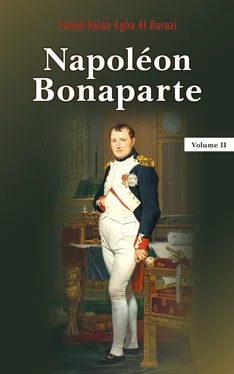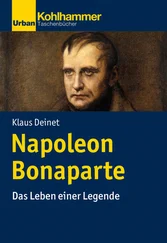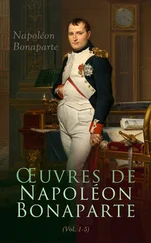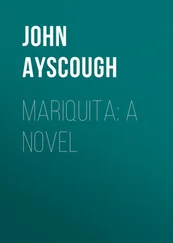Fahed Aslan Agha Al Barazi - Napoléon Bonaparte
Здесь есть возможность читать онлайн «Fahed Aslan Agha Al Barazi - Napoléon Bonaparte» — ознакомительный отрывок электронной книги совершенно бесплатно, а после прочтения отрывка купить полную версию. В некоторых случаях можно слушать аудио, скачать через торрент в формате fb2 и присутствует краткое содержание. Жанр: unrecognised, на английском языке. Описание произведения, (предисловие) а так же отзывы посетителей доступны на портале библиотеки ЛибКат.
- Название:Napoléon Bonaparte
- Автор:
- Жанр:
- Год:неизвестен
- ISBN:нет данных
- Рейтинг книги:4 / 5. Голосов: 1
-
Избранное:Добавить в избранное
- Отзывы:
-
Ваша оценка:
- 80
- 1
- 2
- 3
- 4
- 5
Napoléon Bonaparte: краткое содержание, описание и аннотация
Предлагаем к чтению аннотацию, описание, краткое содержание или предисловие (зависит от того, что написал сам автор книги «Napoléon Bonaparte»). Если вы не нашли необходимую информацию о книге — напишите в комментариях, мы постараемся отыскать её.
Napoléon Bonaparte — читать онлайн ознакомительный отрывок
Ниже представлен текст книги, разбитый по страницам. Система сохранения места последней прочитанной страницы, позволяет с удобством читать онлайн бесплатно книгу «Napoléon Bonaparte», без необходимости каждый раз заново искать на чём Вы остановились. Поставьте закладку, и сможете в любой момент перейти на страницу, на которой закончили чтение.
Интервал:
Закладка:
When Champagny, the Foreign Minister, planned to change the name of the Place de La Concorde to the Place Napoléon, Napoléon rejected the idea: “The Concorde Name Must remain. It is what makes France invincible.”
The imposing Arc de Triomphe, situated at the crossing of two major country lanes to the north-west of Paris, has inscribed on it the names of battles Napoléon fought triumphantly; Marengo, Arcola, Austerliz, Jena, Friedland, Wagram, Borodino, Abu Qir and others. To commemorate scenes of his battles, he commissioned Gros, whom Josephine had introduced to Napoléon in Milan on his first Italian campaign. Gros’ works depicted army drills, movements of columns under fire, charge of Cavalry, artillery thundering and blazing awaybrought the battle scene on Canvas. On the other hand, David had eternalised Napoléon, depicting him charging on his black stallion and crossing the Arcola Bridge.
Napoléon’s deeds and achievements, beside his genius on the battle-field and military campaigns, is a reflection on what constitute his personality and character. He prided himself on being a member of the Science Institute, he often discussed mathematical formulas and solutions with his ‘peers at the Institute’, the only group he really felt comfortable with. He was instrumental in the writing and introducing the Civil Code or Code de Napoléon; he presided over 90 percent of the drafting of the Civil Code. The vestiges of his embellishment not just of Paris but throughout the realm of the Empire, from Italy, to Germany, Holland and every country allied or a vassal state, are still present; Napoléon’s marks are indelible. For example, when the Dutch had the tradition to use son/father names as the family name, he forced them to use proper names to indicate ‘the family’. Quite a few were at a loss, so they chose either funny names or worse, names that they regret to this day, for it got stuck with them and some, even today, are trying to change it to something more appropriate.
Music, opera, theatres, all facets of arts that concerned the people of his Empire were influenced by him in one way or the other. Napoléon loved music; amongst his favourites were Puccini and Giovanni Paisiello. Italian Opera was his favourite; he often sang out of tune but endeavoured to attend as many opera performances as time would allow while in Paris. He was a true patron of arts and music; when he found out that a renounced musician was in despair, he would rescue him and provide him with decent means to carry on with his life. A case in point was the musician Le Sueur; when Napoléon found him in a state of exigency, he provided him with the necessary means for a decent life.
During the Empire, Opera had its hey-day due to Napoléon’s personal patronage and the special care that he personally afforded it. His vigorous schedule of work never prevented him to attend to every detail that concerned his regime or his personal life. So, while his thoughts were pre-occupied with the affairs of state and, more recently, in 1810, with his premonitions about the emboldened Russian hostile daring stance, his labour never ceased to impart its accomplishments on France and the Empire.
In 1810, to curtail written subversive literature, Napoléon had ordered the censorship of books that incite against the state. In 1811, Dec., he reversed his decision and confined the censorship to strictly libellous material, allowing a more liberal policy for book publishing, yet at the same time safeguarding against incitement.
1811–1812
The events in 1811–1812 were racing ahead for a confrontation with Russia. “Victory can only be secured when I am at the head of the army”. These very words, uttered by the Emperor, were ironically repeated by Alexander. Caulincourt, when summoned by Tzar Alexander, quoted and relayed to Napoléon the Tzar’s dialogue: “I shall benefit from his own teachings, for he is the master of the art of war. Miracles only happen when the Emperor is present, and he cannot be present everywhere.” These words greatly moved the Emperor; however, his mind was set on bringing Russia to her knees.
“The Tzar has violated our alliance; he has thrown Russia open to Colonial goods, he allows British ships in Russian harbours, he raised import duties on French products; it is Alexander who is instigating war, not I. He is whimsical and weak. In one major battle I will shatter his armies.”
Nevertheless, Napoléon’s words were backed by immense preparations. He remembered well the difficulties of an invasion of Russia, and nor did he forget the difficulties he encountered during the battle of Eylau in 1807. By July 1811, he had already embarked on immense preparations, the Grande Armée, comprising half a million men, set to march on Russia by May 1812.
Meanwhile the French reverses in Spain and Marshal Massena’s failure to evict Wellington from Portugal, and his subsequent retreat, had thrown new doubts on the Emperor’s plan of invasion. He turned to his cashiered Minister of Police, Fouché, whom he had dismissed the year before, and like Talleyrand, the Emperor found in him a man who could provide him with advice about even the most private matters.
He summoned Fouché and told him, “Since my marriage, people seem to think that the lion is asleep. With my Grande Armée, I shall envelope all Europe. Did you not once say to me ‘Let your genius have its way, because it does not know the word impossible?’ I cannot help it if this great force within me drives me to be the master of the world. Those who criticise me today, and you, one of them, have you not all been accomplices? I have not yet fulfilled my destiny, and I endeavour to finish what I began. We need a European Legal Code, a European Court of Appeal, unified coinage, a common system of weights and measures. The same law must run throughout Europe. I shall fuse all the nations into one … this, Lord Duke, is the only solution that pleases me.” This was Napoléon’s grandiose plan for a United States of Europe; and although Fouché harboured no loyalty for his Emperor, he records the Emperor’s words verbatim in his memoir.
This is the man whom the Emperor had dismissed and yet kept close at hand and appointed senator. “Keep your friends close and your enemies closer,” was Napoléon’s remark. What the visionary genius had envisioned for Europe, driven through the force of arms, emulating a predecessor a millennium before, has become a reality based on reasons of economics and security, not coercion, intimidation and annexation. Yet, during his time, the Emperor saw an old Europe, fragmented and disorderly; what he saw and envisaged was alien to the other rulers. One hundred and sixty years later, the man of genius was to be proven right.
Meanwhile, the obsequious Talleyrand continued to periodically inform the Russians of the Emperor’s preparations for war. For this he was generously rewarded with import licenses for English goods in Russian harbours, which he would turn and sell for hard cash to eager merchants.
The economic blockade that had afflicted Europe had been taking its toll on French finances as wellas the rest of Europe; his remedy for the situation “lies in defeating Russia and bringing her in line with his doctrine.” When he summoned the chambers of commerce, he uttered the following plausible words: “The blockade has harmed England more than any other state; by the terms of the treaty of Tilsit, France has received in excess of a milliard Francs in indemnities, England and Russia are in a tottering financial state and Austria is on the verge of bankruptcy. Only France has money.”
While the Emperor marshalled his preparations for war against Russia, there were attempts to abort his plans. In Prussia, the renowned General Scharnhorst, who engendered and modernised the Prussian Military, advised Frederick William that it was now the time to strike by seeking an alliance with Russia. But Frederick William, who had suffered a crushing defeat at Jena by the French, considered the Emperor invincible. Besides, Prussia was surrounded by the Emperor’s troops swarming in Silesia and Poland; he was therefore cowed into alliance with the Emperor. The Austrians had made up their mind, and Emperor Francis joined in alliance with his son-in-law. In fact, an alliance between the two Emperors was celebrated in 1810, after giving his daughter’s hand Mary Louise to the French Emperor. Three years later this alliance would be broken when in 1813, on the advice of Metternich, he joined the sixth coalition.
Читать дальшеИнтервал:
Закладка:
Похожие книги на «Napoléon Bonaparte»
Представляем Вашему вниманию похожие книги на «Napoléon Bonaparte» списком для выбора. Мы отобрали схожую по названию и смыслу литературу в надежде предоставить читателям больше вариантов отыскать новые, интересные, ещё непрочитанные произведения.
Обсуждение, отзывы о книге «Napoléon Bonaparte» и просто собственные мнения читателей. Оставьте ваши комментарии, напишите, что Вы думаете о произведении, его смысле или главных героях. Укажите что конкретно понравилось, а что нет, и почему Вы так считаете.












